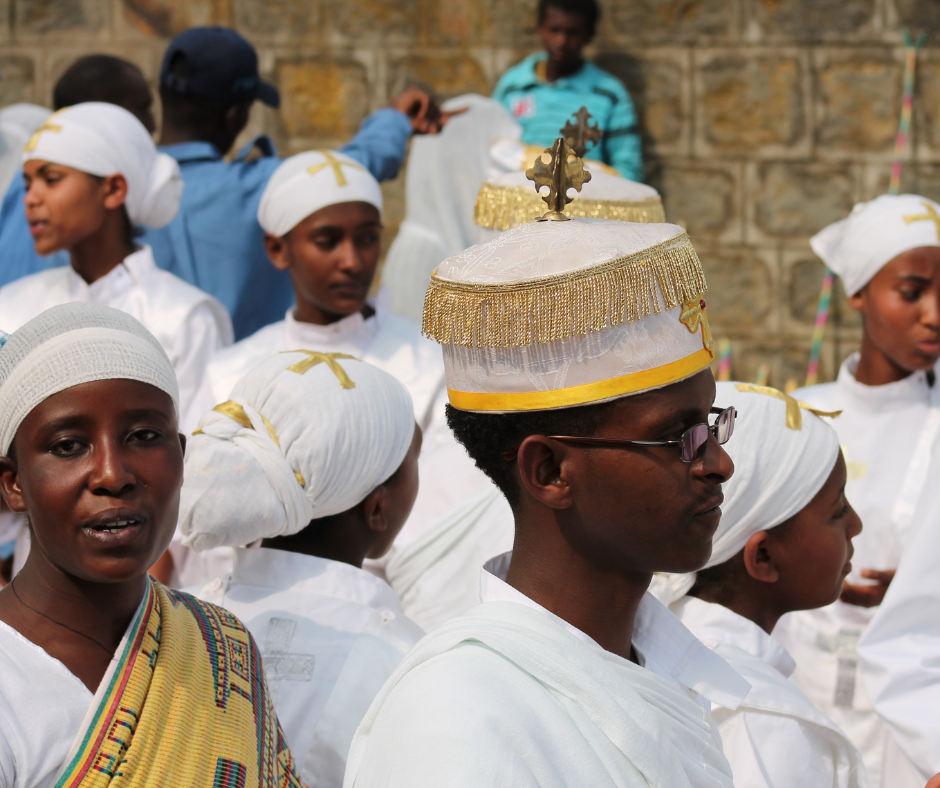With over 2.2 billion believers globally, Christianity is considered as the biggest religion in the world. Majority of Christians reside in the Americas and in Europe and significant numbers live in sub-Saharan Africa and Asia.1,2
The large population of Christians around the world, however, is divided into many various churches of Christianity. Each church has its own set of beliefs, perceptions, and interpretations on the teachings of the Bible, which is the most sacred scripture of the Christian religion. Consequently, the various Christian churches react differently to in vitro fertilization (IVF) and other techniques for assisted reproduction. Majority of these churches strongly oppose IVF and assisted reproductive technology (ART) but some techniques are allowed in specific circumstances.3
Almost half of all Christians in the world belong to the Roman Catholic church, while about 37% are Protestants. The Church of England and the Eastern Orthodox Church comprise approximately 12% of the total Christian population. The remaining 1% is composed of other Christian groups, such as Baptist, Methodist, Lutheran, Church of Latter-Day Saints (Mormons), Presbyterian, Episcopal, United Church of Christ, Jehovah's Witnesses, Seventh Day Adventists, and the Mennonites.2
This short article will outline the views and distinct recommendations of these various Christian churches on IVF and other ART procedures.
Roman Catholic Church
The Roman Catholic Church, with its over 1.2 billion devotees worldwide, is considered as the dominant church since the establishment of Christianity. While the Church strongly encourages procreation, it has maintained a critical stance against IVF and other forms of ART. In 2008, the Church published the Dignitas Personae, a document that emphasized the Church’s stand against IVF, contraception, and abortion. This publication also promulgated the strict opposition of the Church to the different techniques in assisted reproduction.According to Dignitas Personae, medical procedures related to reproduction should respect three fundamental principles. These are: 1) the right to physical integrity of each human from conception to natural death, 2) unity of marriage and becoming a parent only by one’s spouse, and 3) a human person must be brought to life through the conjugal act that is only exists with love between spouses. Given these fundamental principles, the Church clarifies that the main reason why it strongly condemns IVF and other forms of ART because of its belief that human life should occur through sexual union, which should then be an act of love between a married couple.4,5
Hence, the Church maintains that it is against IVF, intrauterine insemination (IUI), intracytoplasmic sperm injection (ICSI), embryo transfer, embryo donation, surrogacy, preimplantation genetic diagnosis, prenatal diagnosis, and some forms of genetic engineering.3 In addition, it is worth noting that the Catholic Church considers the zygote, embryo, and fetus as human beings who must be respected and protected. Therefore, it is strongly against embryo research, cryopreservation, and abortion.6
Protestant Church
Research centers estimate that there are about 800 million to 1 billion Protestants globally.7 The Protestant Church is divided into several denominations, the major ones include the Calvinists (which include the Presbyterians and the Congregationalists), Adventists, Anglicans, Baptists, Methodists, and the Pentecostalists.3
Unlike the Catholic Church, the Protestant Church has not defined a rigid set of ethical guidelines and opinions regarding IVF and other fertility treatments. Protestants who approve of IVF consider it only for married couples. Also, all embryos produced must be implanted into the uterus and selective reduction must not be performed.3
A research study that conducted an online survey in 2019 explored the general attitudes of Protestant Christians toward IVF and other techniques of assisted reproduction. The respondents are from North America, Australia, and Asia, and have been identified as highly religious. The responses suggested that the approval of Protestants to IVF and ART is significantly higher than that of Catholics. Among the respondents who had personal experience of ART, majority would choose ART again. Those who are not keen in undergoing ART again cite emotional cost, ethical issues regarding the disposal of embryos, financial cost, and stress to the couple. When asked about embryo creation for IVF, 70% of the respondents approved of the procedure. Similarly, almost 64% were in favor of ICSI. However, majority of the respondents were against sperm and egg donation and preimplantation genetic diagnosis. These procedures were viewed to cause potential damage to the relationship of the married couple and/or threaten the life of the embryo.7

Church of England
Also known as the Anglican Church, the Church of England currently has more than 85 million devotees worldwide. The Church of England does not provide a definite moral status to the embryo and maintains that a moral status can only be granted to an individual with a well-defined personality. Hence, the Church permits IVF, ART, and embryo transfer. Sperm collection after masturbation is also permitted. Recently, sperm and egg donation by third parties has also been allowed. Nonetheless, the Church maintained that it is still the decision of the Anglican couple or individual whether they would use donor sperm/egg or not.3
However, the huge issue about the Anglican Church’s view on IVF and ART is its initial disapproval of offering fertility treatments to single women and LGBTQ+ couples. In 1984, the Committee of Inquiry into Human Fertilisation and Embryology ruled that fertility treatments should be limited to heterosexual couples, citing the idea that children need to be raised in a household headed by a heterosexual couple, whether married or not.8 In 1990, a legislation was enacted based on the recommendations of the Committee. This law required the screening of individuals who want to have ART and consider the need of the child for a father. This law, ultimately, expressed concern over single women and lesbian couples of getting fertility treatments. In 2008, the Parliament changed the mandate to consider the need of the child for a father to the “need for supportive parenting.” This development was celebrated as a significant victory for single women and same-sex couples.9
This year, the UK Department of Health and Social Care published the Women’s Health Strategy for England, which aims to end the discrimination and affirm the reproductive rights of female same-sex couples seeking fertility treatments. It expressed its commitment to remove the discriminatory policies against female same-sex couples who want to have a child through ART.10
Eastern Orthodox Church
The Eastern Orthodox Church, also referred to as the Orthodox Catholic Church, currently has approximately 220 million baptized members around the world. The Eastern Orthodox Church recognizes that the desire to have children is natural and sacred. Hence, the advent of fertility treatments that provide hope to infertile couples is welcomed by the Church.11 However, it does set certain reservations regarding the use of IVF and ART.
For instance, the Eastern Orthodox Church permits the use of intrauterine insemination using the husband’s sperm. On the other hand, it is against IVF, sperm and egg donation, embryo donation, and surrogacy. Moreover, couples must seek Adoption is deemed as the most appropriate alternative for infertile couples who want to build their family. If adoption is not possible, the Church could allow some variants of IVF, but these techniques should only involve the sperm and egg of the couple and that there should not be any surplus embryos for destruction.3,11 Also, before undergoing any IVF techniques, the couple must seek blessing from the Orthodox Church. Only married couples, with which the woman is still of childbearing age, will be blessed to undergo IVF.12
Other Christian churches
The other Christian churches make up approximately 1% of the Christian population worldwide. These churches include Mormons (Latter-Day Saints), Episcopal, Seventh-Day Adventists, Mennonites, and Jehovah’s Witnesses. These organizations allow their members to seek infertility workup and treatments. IVF can be performed with the conditions that only the couple’s cells will be used and that no surplus embryos will be produced. Sperm or egg donation is prohibited, and surrogacy is discouraged.3,13,14
If you are a Christian who is interested in undergoing IVF and other treatments for infertility, you can consult a trusted fertility expert who will assist you in your fertility journey. Fertility experts will help you understand all the important details of ART. They will also assist you in choosing the perfect fertility clinic that can make your IVF dreams come true.
References
- World Data (2022). Spread of Christianity. Retrieved from: https://www.worlddata.info/religions/christianity.php.
- Pew Research Center (2011). Global Christianity – A Report on the Size and Distribution of the World’s Christian Population. Retrieved from: https://www.pewresearch.org/religion/2011/12/19/global-christianity-exec/
- Sallam, H. N., & Sallam, N. H. (2016). Religious aspects of assisted reproduction. Facts, Views & Vision in ObGyn, 8(1), 33–48.
- Congregation for the Doctrine of the Faith (2008). Dignitas Personae. Retrieved from: https://www.vatican.va/roman_curia/congregations/cfaith/documents/rc_con_cfaith_doc_20081208_dignitas-personae_en.html
- Mallia, P. (2013). Developments in IVF legislation in a Catholic country. Med Health Care and Philos, 16:385-390.
- Abou-Abdallah, M. (2008). The Vatican view of human procreation. In Infertility and Assisted Reproduction. BotrosRizk, Juan Garcia-Velasco, Hassan Sallam, Antonis Makrigiannakis (eds), p. 741-746, Cambridge University Press.
- Best, M., Sleasman, M., Hegedus, E., Schlub, T. (2019). Protestant Christian attitudes to ART. Human Reproduction Open. 1-7.
- Department of Health & Soc. Sec. (1984). Report of the Committee of Inquiry into Human Fertilisation and Embryology. pp. 10-12.
- Storrow, R. (2012). Marital Status and Sexual Orientation Discrimination in Infertility Care. Law Journal for Social Justice, 3:99-120.
- Kilbride, E. (2022). England to End LBQ+ Discrimination in Access to Fertility Services. Retrieved from: https://www.hrw.org/news/2022/09/22/england-end-lbq-discrimination-access-fertility-services
- Nikolaos, M. (2008). The Greek Orthodox position on the ethics of assisted reproduction. Reproductive BioMedicine Online, 17(3):25-33.
- Tarabrin, R. (2020). Orthodox perspectives on in vitro fertilization in Russia. Christian Bioethics, 26(2):177-204.
- Church if Jesus Christ. Church Policies and Guidelines. Retrieved from: https://www.churchofjesuschrist.org/study/manual/general-handbook.
